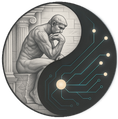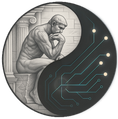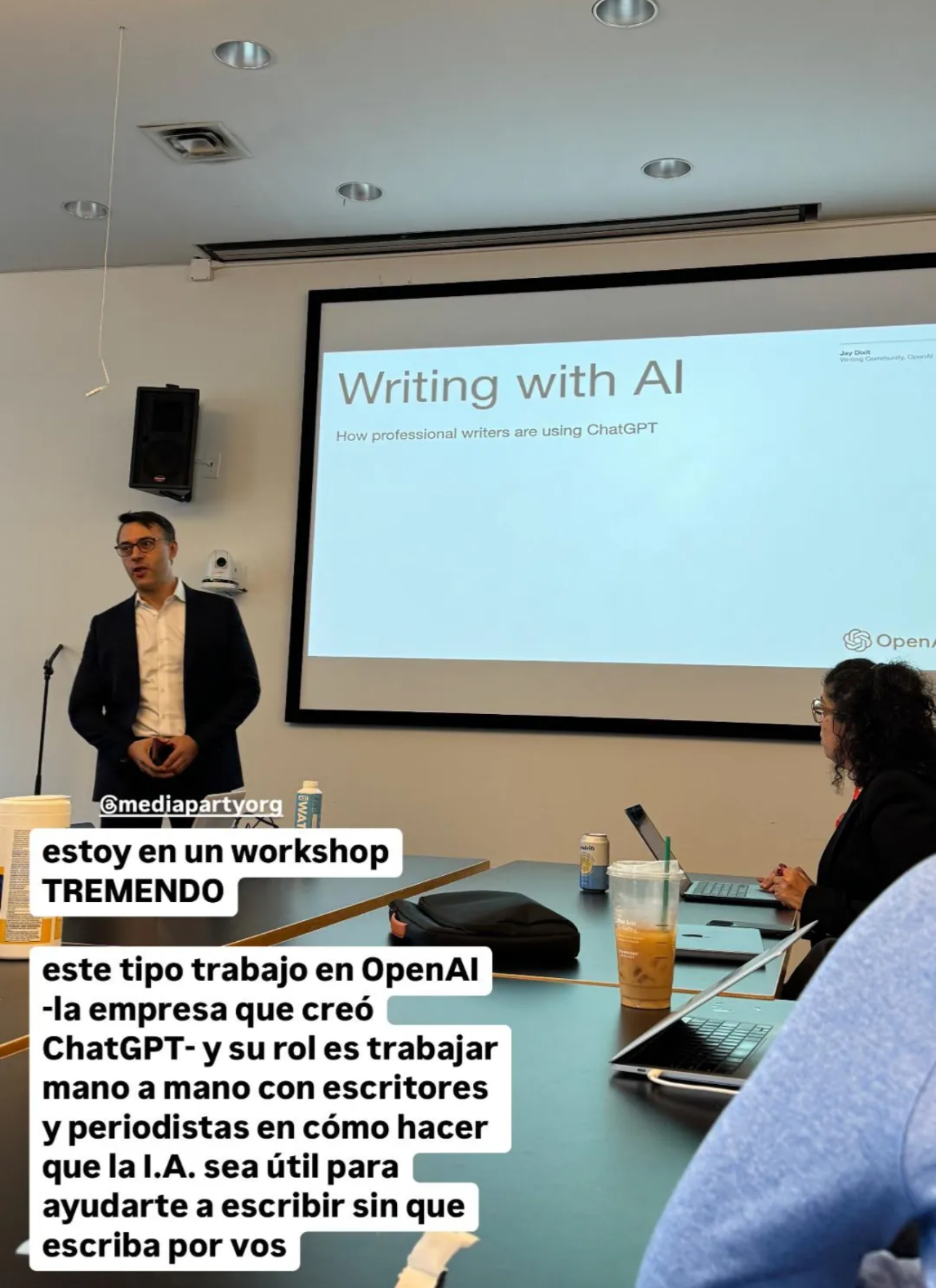Ethical AI to Amplify Human Creativity
- Surface your own best ideas, stories, and examples
- Express yourself with greater clarity and force
- Get guidance, structure, and accountability to pursue and finish ambitious creative projects
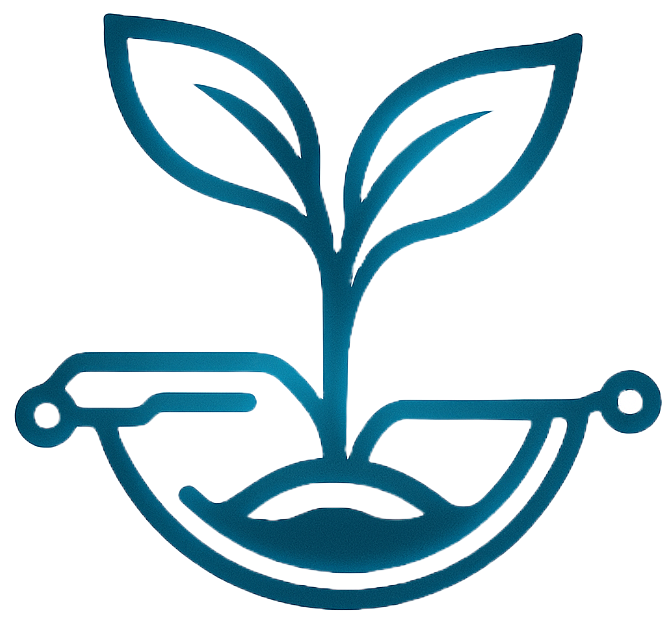
A New Vision for AI
At OpenAI, Jay championed a radical idea — that AI, far from being a threat to creativity, can be a powerful tool to nurture the curiosity, imagination, and self-expression that make us human.
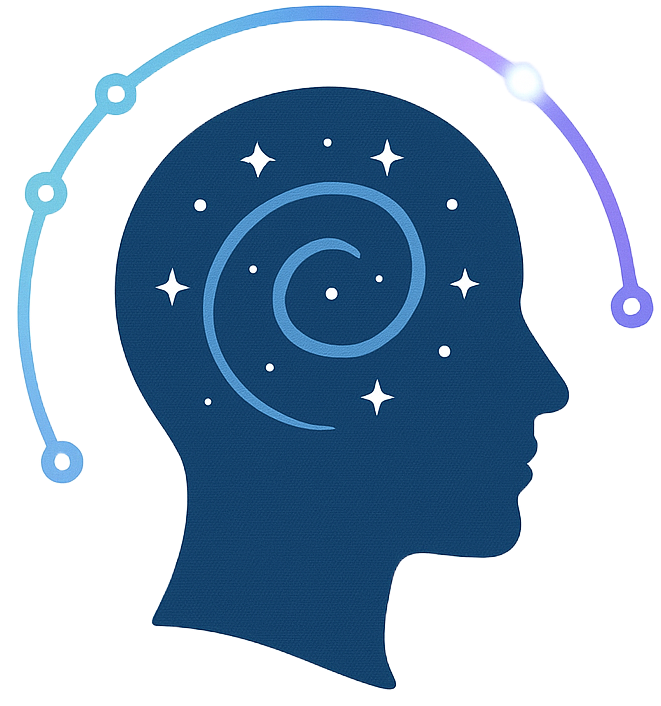
A Human Approach
Socratic reframes AI not as a shortcut to outsource thinking, but as a sounding board and iterative thinking partner to amplify human creativity and help us surface our best ideas.
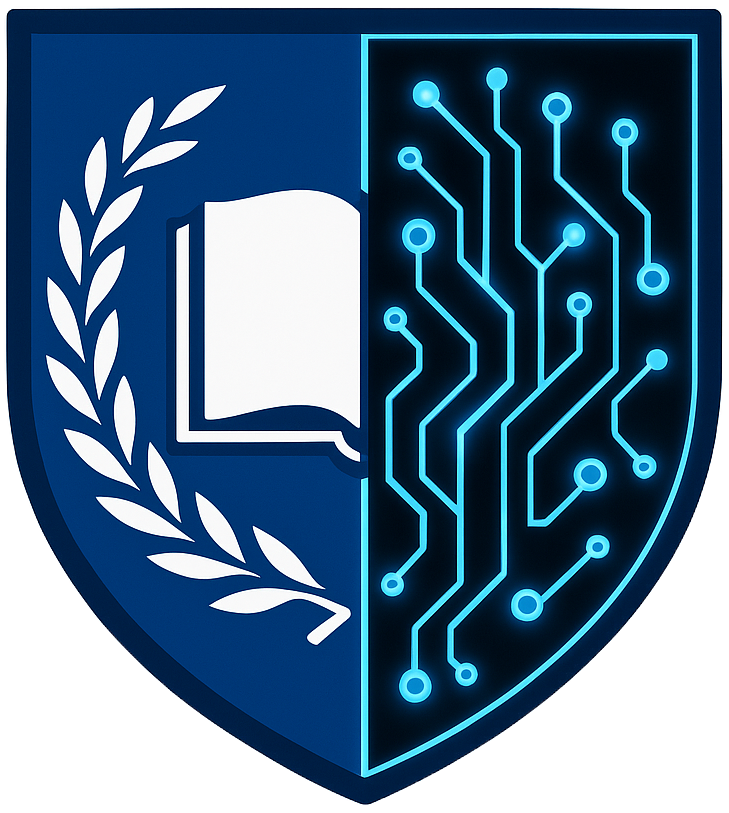
Singular Experience
Jay taught writing and storytelling at Yale University, then went on to serve as OpenAI's first writing community lead. That means Jay has experience and expertise few educators do: shaping AI education from within a leading AI lab.
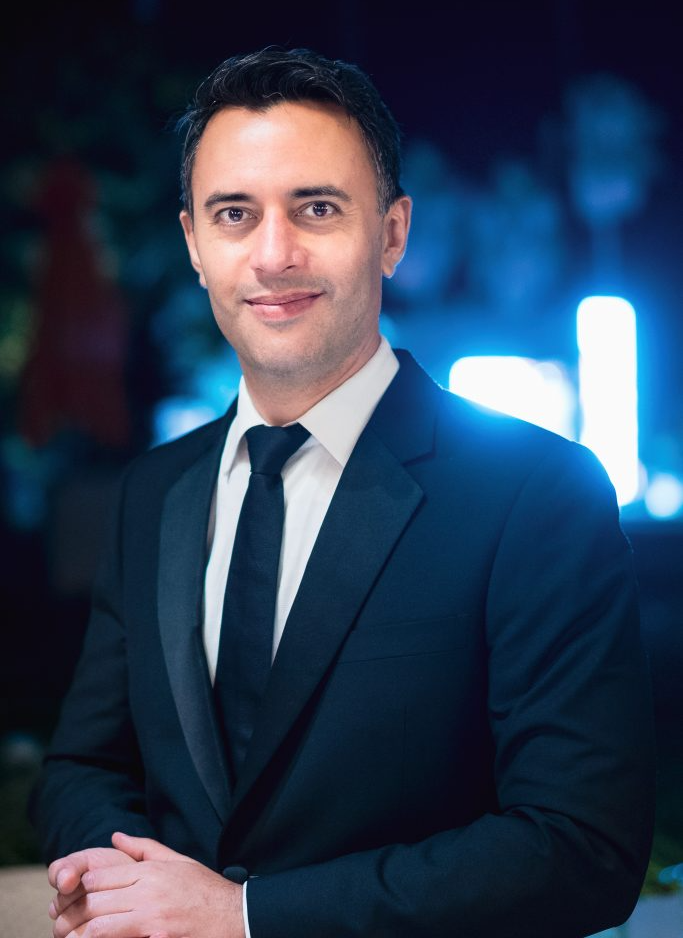
Bio: Jay Dixit
As Head of Community for Writers at OpenAI, Jay authored some of the company's flagship education resources — praised internally as among the strongest writing on openai.com — including AI education guides for writers and students, plus prompting strategies for brainstorming, wordfinding, research, and image generation. He defined key messaging about AI and the future of writing that was presented by CEO Sam Altman in podcasts and interviews, shared widely in viral social posts, and covered extensively in the press.
A sought-after speaker and trainer, Jay has led AI literacy workshops at Harvard, Wharton, Columbia, The Brown Institute for Media Innovation, CSU Fresno, and The Poynter Institute, and appeared on CBC Radio. He also represented OpenAI at writing conferences, film festivals, and university campuses nationwide, training faculty and students in ethical AI use and effective prompting techniques.
Before joining OpenAI, Jay built a distinguished career as an award-winning writer, journalist, and educator. His work has appeared in The New York Times, The Washington Post, Rolling Stone, Harvard Business Review, Wired, and Psychology Today, where he served as Senior Editor covering psychology and neuroscience. He taught writing and storytelling at Yale University, where his acclaimed course “The Art of Storytelling” was offered as an undergraduate writing seminar.
Jay is a Yale graduate (cum laude, with distinction in psychology), a winner of The Moth storytelling competition, and founder of Storytelling.NYC. His senior thesis was published in The Journal of Social Issues and has been cited more than 400 times. He also conducted George Carlin's final interview — which the legendary comedian called the “most complete interview” of his entire career.
Jay’s core belief is simple: AI should support human creativity, not replace the thinking or writing process. Socratic AI teaches a specific practice: use AI to ask better questions, talk out ideas, and get feedback — without outsourcing the work.
Helping People Use AI
Thoughtfully & Effectively
The question isn’t whether to use AI. The real question is: “How do we use AI to think better, do better work, and achieve things we couldn’t achieve without it — without outsourcing the thinking and creativity that makes human work valuable?”
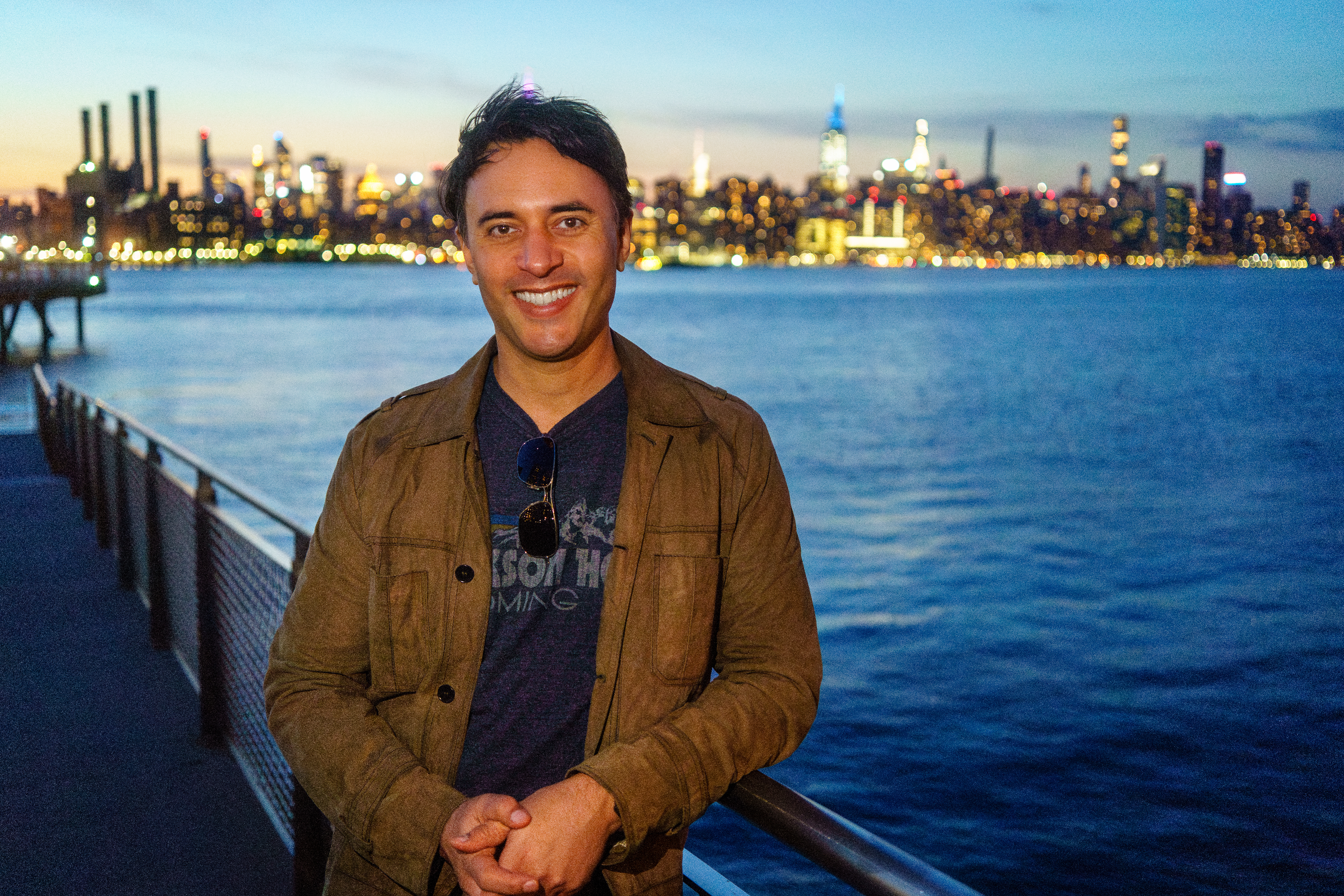
I've spent my life helping people find their voice and tell their stories.
What I Built as OpenAI’s Head of Community for Writers
My Core Strategy at OpenAI
At OpenAI, I led the writing community, guiding writers, professors, and students on how to ethically use ChatGPT in the writing process. My approach was fundamentally different:Outsourcing the writing: “Here’s my assignment. Generate a draft for me.”
Outsourcing the thinking: “Suggest a nuanced thesis statement I can use.”
Socratic AI: “Ask me tough questions to help me clarify my argument.”
High-Trust Community
Built a community of enthusiastic early adopters and trusted advocates among writers, educators, and students to champion ethical AI use.
Socratic AI Framework
Reframed AI not as a shortcut or prose generator, but as an iterative thinking partner to amplify human creativity.
Global Impact
Framework adopted by educators at Harvard, Babson, Simon Fraser, and across the California State University system. Talks at Harvard, Columbia, Wharton.
Community Building & Product Development
Building bridges between OpenAI's technology and the creative community
Cultivated a community of hundreds of writers, journalists, and educators who became champions of thoughtful, ethical AI use.
Led high-trust early access cohort of professional writers to alpha-test Canvas, Search, Operator, and Deep Research before launch.
Nurtured community to share use cases via YouTube videos, podcasts, and public events.
Collaborated with research and product teams to incorporate community feedback into feature development and product roadmaps.
Facilitated community showcases featuring New York Times columnist Farhad Manjoo and Wall Street Journal writer Alexandra Samuel.
Championed innovative use cases from comedy writing to reading companionship, expanding perceptions of AI creative potential.
My Education & Academic Experience
How rigorous training and years in the classroom shaped the way I teach and lead.
Taught writing at Yale, developing innovative approaches to help students find their voice and think critically.
Yale graduate with distinction in psychology, with published research cited 400+ times in academic literature.
Pioneered new methods for teaching writing in the digital age, long before AI became mainstream.
Guided hundreds of students through their academic journeys, fostering critical thinking and authentic expression.
Created acclaimed "Art of Storytelling" course at Yale and founded Storytelling.NYC, winner of The Moth competition.
Senior thesis published in The Journal of Social Issues, establishing expertise in human behavior and creativity.
My Career Milestones
Key moments that shaped my approach to AI and education
Psychology Today: Senior Editor
Wrote and edited 14 cover stories translating psychology and neuroscience research for general audiences. Developed deep expertise in how people learn, create, and reach their potential.
NeuroLeadership Institute: Senior Neuroscience Writer
Spent 8 years collaborating with neuroscientists and psychologists to translate cutting-edge research into corporate training and thought leadership. Wrote for Harvard Business Review, Strategy+Business, and Fast Company about creativity, performance, and unconscious bias.
Yale University: Taught Writing and Storytelling
Taught "The Art of Storytelling" — a undergraduate writing seminar exploring storytelling principles rooted in psychology, neuroscience, and emotion. 150 students applied for 12 spots.
OpenAI: Head of Community for Writers
Developed the "Socratic AI" framework and authored flagship education resources that shaped how writers, educators, and students approach AI. Trained faculty at Harvard, Wharton, Columbia, Babson, and California State University.
Present: Ethical AI Educator & Consultant
Now helping knowledge workers, companies, and universities use AI thoughtfully through keynotes, workshops, and strategic consulting — drawing on decades of experience in science writing, education, and AI literacy.

Publications & Recognition
Selected writings and achievements
Front-page City Section features on comedy, culture, and technology, including "Take My Life, Please" and "Saving a Comedy Club."
Feature articles in The Washington Post, Rolling Stone, Wired, and Slate exploring psychology, technology, and culture.
Senior Editor who wrote and edited 14 cover stories on psychology and neuroscience, including happiness, personality, love, decision-making, and human potential.
Wrote for Harvard Business Review, Strategy+Business, Quartz, and Fast Company on creativity, performance, and the neuroscience of leadership.
Authored flagship guides on OpenAI.com for writers and students, praised as some of the company's strongest public-facing content.
Keynote speaker at Harvard, Columbia, Wharton, and major corporate events for Bank of America, Amazon, Louis Vuitton, and Ogilvy. Winner of The Moth storytelling competition. Red carpet photographer for Wikipedia covering Sundance, TIFF, and the Nobel Prizes in Stockholm and Oslo.
Let’s Connect
Whether you're a knowledge worker, company leader, or educator, I'm here to help. I'd love to hear from you. Let’s explore how we can work together.
